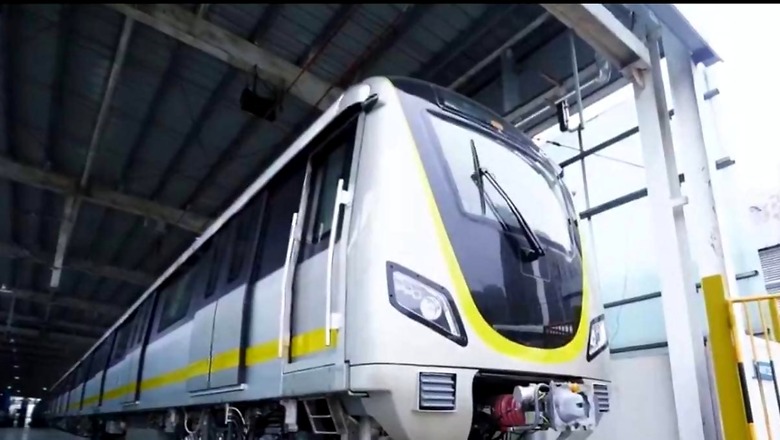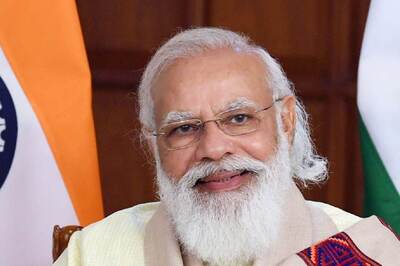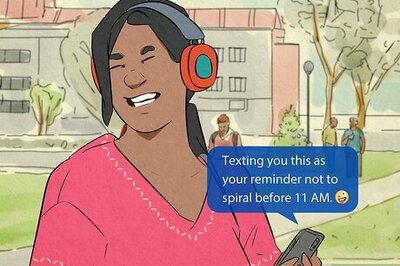
views
Bengaluru’s first driverless metro, which is scheduled for deployment on the Yellow line, will be tested for the integration of the signalling system anytime soon.
As per the officials, the signalling test is a part of the mainline testing of the driverless metro.
According to The Hindu, “Being a new rolling stock, multiple tests need to be conducted. Currently, coaches are undergoing static and electrical circuit testing. Soon, they will be moved to mainline testing, that is integration of the signalling system,” said a senior BMRCL official.
Bengaluru’s driverless metro trains will feature advanced integration with a signalling system, allowing them to communicate and prevent collisions.
Earlier in February, the Bangalore Metro Rail Corporation Ltd. (BMRCL) received its first batch of six coaches from China and are currently undergoing multiple tests at the Hebbagodi Metro depot.
The driverless train has undergone 37 tests, with the forthcoming tests focusing on system integration with signalling, telecommunications and power supply. Mandatory safety tests including oscillation trials by the Research Designs and Standard Organization (RDSO) and an inspection by the Commissioner of Metro Rail Safety (CMRS) are scheduled.
After receiving recommendations from the RDSO and CMRS, the railway board’s permission is necessary before the train can commence its revenue service, as per the officials.
Talking about the metro map, spanning 18.82 km, the Yellow line connects RV Road to Bommasandra, passing through key locations like Jayadeva Hospital, Silk Board Junction, and Electronics City.
It comprises 16 stations and has connectivity with the Green Line Metro at the R.V Road Station and with the Pink Line at Jayadev Hospital Station.
Also, the line has a 3.13 km metrocum-road flyover from Ragi Gudda to Central Silk Board that has been designed to reduce traffic at the Central Silk Board junction. It comprises of five loops and ramps and is an expansion of the double-decker flyover towards K.R Puram and Housar Road, both in advance stages of construction.
The Yellow line aims to enhance connectivity to areas where major IT companies like Infosys and Biocon are located as well as south Bengaluru.
Initially, BMRCL plans to operate a trip every 20 minutes, for a total of 57 forward and return trips per day.
The driverless metro was initially expected to be operational in 2021, but the deadline was further pushed to December 2024.




















Comments
0 comment